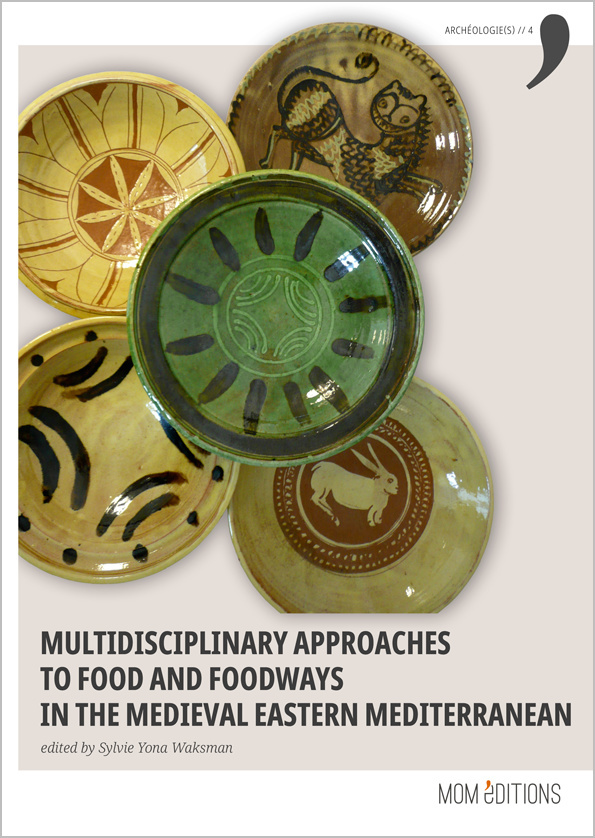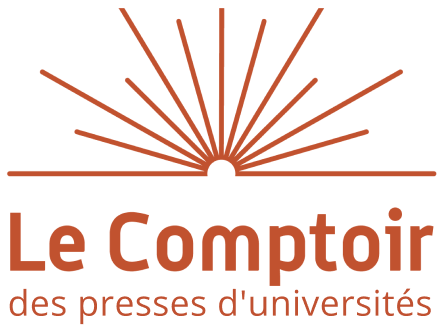Sylvie Yona Waksman
Foreword
Introduction
Sally Grainger
Recipe: Pickle de légumes with oinogaron
Sylvie Yona Waksman
Introduction. The POMEDOR project "People, pottery and food in the medieval Eastern Mediterranean"
Andrew Dalby
The making of the Byzantine dinner, by a participant observer
Cyprus and the Levant
Sally Grainger
Recipe: Bouillon léger de poissons et fruits de mer (monokythron)
Philippe Trélat
Du lac de Limassol aux tables de Nicosie?: pêcheries et consommation de poisson à Chypre sous la domination latine (1191-1570)
Gilles Grivaud
Les tavernes (canutes) comme instruments de contrôle économique et social dans le royaume de Chypre aux XIIIe-XVIe siècles
Nicholas Coureas
Food, wine and the Latin clergy of Lusignan Cyprus (1191-1473)
Ruth Smadar Gabrieli, Sylvie Yona Waksman, Anastasia Shapiro, Alessandra Pecci
Archaeological and archaeometric investigations of cooking wares in Frankish and Venetian Cyprus
Edna J. Stern, Sylvie Yona Waksman, Anastasia Shapiro
The impact of the Crusades on ceramic production and use in the southern Levant: Continuity or change?
Elisabeth Yehuda
Between oven and Tannur: "Frankish" and "indigenous" kitchens in the Holy Land in the Crusader period
Anastasia Shapiro, Edna J. Stern, Nimrod Getzov, Sylvie Yona Waksman
Ceramic evidence for sugar production in the 'Akko plain: Typology and provenance studies
Richard Jones, Anthony Grey
Some thoughts on sugar production and sugar pots in the Fatimid, Crusader/Ayyubid and Early Mamluk periods in Jordan
Byzantium and beyond
Sally Grainger
Recipe: Quail pie & Mixed pulses
Ilias Anagnostakis
"What is plate and cooking pot and food and bread and table all at the same time?"
Béatrice Caseau
Dogs, vultures, horses and black pudding: Unclean meats in the eyes of the Byzantines
Nikos D. Kontogiannis, Stefania S. Skartsis, with contributions by Giannis Vaxevanis, Sylvie Yona Waksman
Ceramic vessels and food consumption: Chalcis as a major production and distribution center in the Byzantine and Frankish periods
Elli Tzavella
Corinth: beyond the forum. Use of ceramics, social implications and settlement pattern (12th-13th centuries)
Joanita Vroom
Eating in Aegean lands (ca 700-1500): Perspectives on pottery
Iryna Teslenko
The composition of church festive meals in a medieval Christian community in the southern Crimea, based on ceramics and faunal materials
Zeynep Mercangöz
A pottery production for whom and for what target? Thoughts on pottery finds from Kadikalesi (Kusadasi) excavation
Michel Balard
L'approvisionnement des villes d'Orient par les marchands italiens (XIIIe-XVe siècle)
Vedat Onar
Animals in food consumption during the Byzantine period in light of the Yenikapi metro and Marmaray excavations, Istanbul
Anna Elena Reuter
Food production and consumption in the Byzantine Empire in light of the archaeobotanical finds
Chryssa Bourbou
The biocultural model applied: Synthesizing research on Greek Byzantine diet (7th-15th century AD)
Jacques Burlot, Sylvie Yona Waksman, Beate Böhlendorf-Arslan, Joanita Vroom
Changing people, dining habits and pottery technologies: Tableware productions on the eve of the Ottoman Empire in western Anatolia
Filiz Yenisehirlioglu
Ottoman period sources for the study of food and pottery (15th-18th centuries)
Trading goods, trading tastes
Sally Grainger
Recipe: Omelette soufflée & Sweet salad
Evelina Todorova
One amphora, different contents: The multiple purposes of Byzantine amphorae according to written and archaeological data
Alessandra Pecci, Nicolas Garnier, Sylvie Yona Waksman
Residue analysis of medieval amphorae from the Eastern Mediterranean
Yana Morozova, Sylvie Yona Waksman, Sergey Zelenko
Byzantine amphorae of the 10th-13th centuries from the Novy Svet shipwrecks, Crimea, the Black Sea: Preliminary typology and archaeometric studies
George Koutsouflakis
The transportation of amphorae, tableware and foodstuffs in the Middle and Late Byzantine period: The evidence from Aegean shipwrecks
Valentina Vezzoli
Food habits and tableware in Venice: The connection with the Mamluk Sultanate
Concluding remarks
Johannes Koder
Multidisciplinary approaches to food and foodways in the medieval Eastern Mediterranean: Concluding remarks to the POMEDOR symposium

